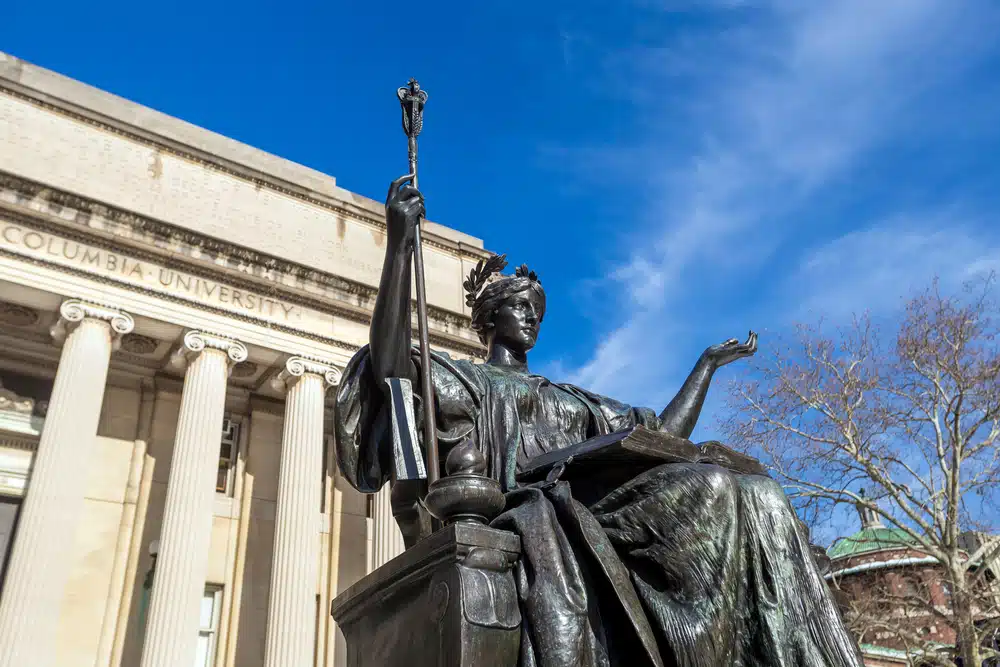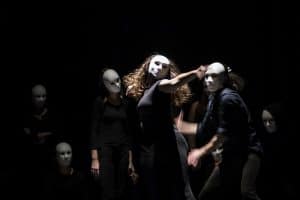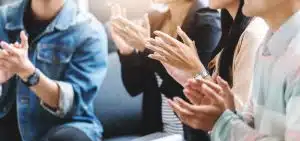Notable Alumni at Columbia
Columbia University, nestled in the heart of New York City, stands as a beacon of academic excellence and intellectual pursuit. Established in 1754, it is one of the oldest higher education institutions in the United States. Over the centuries, Columbia has not only been at the forefront of groundbreaking research and innovation but has also nurtured minds that have shaped history.
From leaders in politics to pioneers in arts and sciences, the notable alumni at Columbia have left an indelible mark on the world. Their achievements, a testament to the rigorous education and holistic grooming they received at Columbia, serve as an inspiration for current and future students.
Who Are Some of the Most Renowned Columbia Alumni in Politics and Public Service?
The realm of politics and public service has seen numerous Columbia graduates rise to prominence, wielding influence on both national and global stages. The notable alums at Columbia in this sector have championed causes, crafted policies, and led nations, reflecting the university’s commitment to fostering leadership and civic responsibility.
Their contributions span a wide range, from domestic policy reforms to international diplomacy, and their legacies continue to shape the political landscapes of today. The university’s rich history of producing such stalwarts is a testament to its dedication to instilling in its students a sense of purpose, a commitment to service, and an understanding of the complexities of governance and diplomacy.
U.S. Presidents who attended Columbia
Two U.S. Presidents, both of whom have left an indelible mark on the nation’s history, are notable alumni at Columbia. Franklin D. Roosevelt, the 32nd President, attended Columbia Law School. Though he did not graduate, his time at Columbia influenced his legal and political perspectives. Roosevelt’s leadership during the Great Depression and World War II showcased his resilience, vision, and commitment to the American people.
On the other hand, Barack Obama, the 44th President, completed his undergraduate studies at Columbia College. His years at the university were formative, providing him with a deep understanding of political science and international relations. Obama’s presidency, marked by efforts to improve healthcare, address climate change, and promote diplomacy, reflects the values and knowledge he garnered during his time at Columbia.
Other political figures and diplomats
Beyond the realm of the presidency, Columbia has been the academic home to numerous other political figures and diplomats who have made significant contributions on the global stage.
Madeleine Albright, the first female U.S. Secretary of State, is among the notable alums at Columbia, having earned her Ph.D. from the university. Her tenure was marked by efforts to expand NATO and address humanitarian crises.
Eric Holder, another distinguished alumnus, served as the first Black U.S. Attorney General. His tenure focused on civil rights, criminal justice reform, and counter-terrorism efforts. These individuals, along with many others, exemplify the caliber of Columbia’s alums and the university’s role in shaping leaders who address the world’s most pressing challenges.
Which Columbia Graduates Have Left Their Mark in the World of Science and Medicine?
Columbia University has long been a hub for scientific inquiry and medical advancements, with its graduates often leading the charge in these fields. The notable alums at Columbia in science and medicine have made groundbreaking discoveries, developed innovative techniques, and pushed the boundaries of human knowledge. Their achievements have not only advanced their respective fields but have also had a profound impact on society at large.
From pioneering research that has reshaped our understanding of the universe to medical innovations that have saved countless lives, Columbia’s alums have consistently showcased the university’s commitment to fostering excellence, curiosity, and a drive to make a difference.
Pioneers in scientific research
The world of scientific research has been significantly influenced by the notable alumni at Columbia, who have delved deep into the mysteries of nature and the universe.
Dr. Virginia Apgar, for instance, revolutionized neonatology with the introduction of the Apgar Score, a quick test administered to newborns to assess their health. Her work has since become a standard practice worldwide, ensuring the well-being of countless infants.
Another luminary, Julian Schwinger, a Nobel laureate in Physics, made significant contributions to quantum mechanics and electrodynamics. His work laid the foundation for many modern theories and has been instrumental in shaping the course of theoretical physics. These pioneers, with their relentless pursuit of knowledge, embody the spirit of inquiry and innovation that Columbia instills in its students.
Medical breakthroughs and innovations
In medicine, the notable alums at Columbia have been at the forefront of numerous breakthroughs and innovations that have transformed healthcare. Dr. Robert Lefkowitz’s work on G-protein coupled receptors, for which he was awarded the Nobel Prize in Chemistry, has had a profound impact on pharmacology, leading to the development of numerous drugs.
Similarly, Dr. Andrew V. Schally’s Nobel Prize-winning research in endocrinology has paved the way for advancements in hormone treatments and therapies. These medical luminaries, with their dedication to improving human health and their ability to challenge existing paradigms, exemplify the best of Columbia’s legacy in the medical field. Their achievements testify to the university’s role in nurturing minds that drive medical progress and innovation.
How Have Columbia Alumni Influenced the Arts and Entertainment Industry?
The arts and entertainment industry, with its vast expanse and influence, has been significantly shaped by the notable alumni at Columbia. These graduates, equipped with a rich academic foundation and a passion for creative expression, have ventured into various artistic domains, leaving an indelible mark with their work.
From literature to film, theater to music, Columbia’s alums have showcased a unique blend of intellectual depth and artistic flair. Their contributions have not only enriched the cultural tapestry but have also sparked conversations, challenged conventions, and inspired countless others. The legacy of these alumni underscores Columbia’s commitment to nurturing versatile talents who redefine the boundaries of artistic expression.
Literary giants
The literary world boasts several notable alums at Columbia who have penned masterpieces, influencing generations of readers and writers alike. Jack Kerouac, a leading figure of the Beat Generation, is celebrated for his iconic work “On the Road,” which captured the spirit of a generation seeking meaning and adventure. His narrative style and thematic explorations have made him a cornerstone of American literature.
Another luminary, Jhumpa Lahiri, with her evocative prose and keen insights into the immigrant experience, won the Pulitzer Prize for her debut short story collection, “Interpreter of Maladies.” Her works delve deep into the nuances of identity, belonging, and the human condition, resonating with readers across the globe. These literary giants, with their distinct voices and perspectives, exemplify the depth and diversity of Columbia’s literary legacy.
Film and theater luminaries
In film and theater, the notable alums at Columbia have illuminated screens and stages with their visionary work. Kathryn Bigelow, a trailblazer in the film industry, became the first woman to win the Academy Award for Best Director for her intense war drama “The Hurt Locker.” Her films, known for their gripping narratives and meticulous craftsmanship, have redefined cinematic storytelling.
On the theater front, the legendary duo Richard Rodgers and Oscar Hammerstein II, both Columbia graduates, revolutionized musical theater with classics like “The Sound of Music” and “Oklahoma!” Their timeless compositions and innovative storytelling techniques have left an enduring legacy in the theater world. These luminaries, with their unparalleled creativity and dedication to their craft, showcase the profound impact Columbia alums have had on the global entertainment landscape.
Who Are the Business and Entrepreneurial Leaders from Columbia?
Columbia University, with its rich academic heritage and commitment to fostering leadership, has produced numerous trailblazers in the business and entrepreneurial sectors. The notable alums at Columbia have ventured into diverse industries, from finance and technology to retail and services, leaving a transformative impact.
Their achievements, marked by innovation, strategic vision, and ethical leadership, have not only driven economic growth but have also set benchmarks for future generations. These business leaders, with their Columbia education as a cornerstone, have demonstrated the power of knowledge, perseverance, and adaptability in the ever-evolving business world.
Titans of industry
The corporate world boasts several alums at Columbia who have risen to helm some of the most influential and successful enterprises globally.
Warren Buffett, often dubbed the “Oracle of Omaha,” stands out as one of the most successful investors ever. His investment philosophy, deeply influenced by his time at Columbia under the mentorship of Benjamin Graham, has guided Berkshire Hathaway to unparalleled heights.
Another trailblazer, Ursula Burns, made history as the first Black woman to lead a Fortune 500 company when she became the CEO of Xerox. Her leadership, marked by innovation and a commitment to diversity, has been instrumental in steering the company through challenging times. These titans, with their strategic insight and leadership prowess, exemplify the caliber of business leaders Columbia has nurtured over the years.
Innovators and entrepreneurs
Beyond the established corporate giants, the entrepreneurial landscape is dotted with notable alums at Columbia who have disrupted industries and introduced groundbreaking solutions. Sallie Krawcheck, a finance veteran, has emerged as a leading voice in financial feminism with her digital investment platform, Ellevest, tailored specifically for women.
Ben Horowitz, co-founder of the venture capital firm Andreessen Horowitz, has played a pivotal role in backing and guiding numerous tech startups that have become industry leaders. His insights into the challenges and nuances of building successful companies have made him a sought-after mentor and thought leader.
These innovators, with their ability to challenge the status quo and drive change, showcase Columbia’s role in shaping entrepreneurial minds ready to tackle the challenges of the modern business world.
How Have Columbia Graduates Shaped the World of Sports and Athletics?
The world of sports and athletics, often seen as a realm distinct from academia, has been profoundly influenced by the notable alumni at Columbia. These graduates, armed with the discipline, determination, and strategic thinking fostered at Columbia, have ventured into various facets of sports, from on-field excellence to behind-the-scenes management.
Their contributions have not only elevated the standards of athletic performance but have also reshaped the business and narrative of sports. Through their achievements, these alumni have showcased that the principles of excellence and leadership taught at Columbia are universally applicable, even in arenas and stadiums.
Legendary athletes
Among the notable alums at Columbia who have etched their names in the annals of sports history, Lou Gehrig stands out prominently. Known as the “Iron Horse,” Gehrig’s illustrious baseball career with the New York Yankees is marked by his incredible talent, consistency, and resilience. His record for consecutive games played stood unbroken for over half a century, and his legacy extends beyond the field, especially with his graceful public battle with amyotrophic lateral sclerosis (ALS), now commonly known as Lou Gehrig’s disease.
Another standout is Marcellus Wiley, who transitioned from Columbia’s football fields to a successful career in the NFL, playing for teams like the Buffalo Bills and the San Diego Chargers. These athletes, with their exemplary careers, underscore the blend of intellectual and physical prowess that Columbia nurtures.
Sports executives and commentators
Beyond athletic performance, the notable alums at Columbia have also made significant strides in the management, promotion, and narration of sports. Brandon Steiner, a sports marketing mogul, revolutionized sports memorabilia and marketing with his innovative approaches, turning athlete endorsements and memorabilia into a multi-million dollar industry.
Roone Arledge, another distinguished alumnus, transformed sports broadcasting with his visionary leadership at ABC Sports. His innovations, including creating shows like “Monday Night Football,” have set the standard for how sports are presented to audiences worldwide.
These executives and commentators, with their insights and innovations, have played pivotal roles in shaping the modern landscape of sports entertainment and business.
What Role Have Columbia Alumni Played in Social Activism and Advocacy?
Throughout history, Columbia University has been a crucible for critical thought, fostering a spirit of inquiry and a commitment to social justice among its students. This ethos has translated into a significant number of its graduates taking up the mantle of social activism and advocacy.
The notable alums at Columbia have championed various causes, from civil rights and gender equality to environmental conservation and educational reform. Their endeavors, deeply rooted in justice, equity, and community engagement, have catalyzed change, challenged societal norms, and inspired movements.
Their legacies serve as a testament to Columbia’s unwavering commitment to producing not just scholars but also conscientious citizens of the world.
Voices for change
Among the notable alums at Columbia who have emerged as powerful voices for change, Bayard Rustin stands out for his tireless efforts in the civil rights movement. An advisor to Martin Luther King Jr., Rustin was instrumental in organizing the March on Washington in 1963, where King delivered his iconic “I Have a Dream” speech. His advocacy for nonviolent protest and his work for marginalized communities have left an indelible mark on the fight for equality in America.
Similarly, Zainab Salbi, an Iraqi-American humanitarian, founded Women for Women International, an organization dedicated to supporting women survivors of war. Her work, spanning across conflict zones from Bosnia to Afghanistan, has empowered thousands of women, providing them with resources, skills, and a voice. These trailblazers, with their unwavering commitment to justice and equality, embody the spirit of activism that Columbia fosters in its students.
Advocates for education and literacy
The realm of education and literacy has also seen significant contributions from notable alums at Columbia. Mortimer J. Adler, a philosopher and educator, passionately advocated for the Great Books program, emphasizing the importance of reading and understanding the foundational texts of Western civilization. His efforts have been instrumental in promoting liberal arts education and critical thinking.
Another influential figure, Sonia Manzano, best known for portraying “Maria” on the beloved children’s show “Sesame Street,” has been a staunch advocate for children’s literacy and education. Through her work on and off the screen, she has inspired generations of children, emphasizing the importance of learning, inclusivity, and cultural understanding.
These advocates, with their dedication to enlightening minds and nurturing potential, highlight Columbia’s legacy in education and literacy advocacy.
Conclusion
As we reflect upon the illustrious history and legacy of Columbia University, it becomes evident that its influence extends far beyond the confines of its campus in New York City. The institution, with its commitment to academic rigor, intellectual exploration, and holistic development, has consistently produced individuals who have not only excelled in their respective fields but have also shaped the course of history.
The stories of these notable alumni at Columbia testify to the transformative power of education and its potential to drive change, inspire innovation, and foster leadership.
The lasting impact of Columbia University’s education
The education imparted at Columbia University is not merely about acquiring knowledge; it’s about cultivating a mindset. This mindset, characterized by critical thinking, ethical grounding, and a global perspective, has enabled its alums to navigate the complexities of the modern world with discernment and integrity.
Whether it’s in politics, science, arts, business, or social activism, the notable alums at Columbia have consistently showcased an ability to challenge conventions, introduce novel solutions, and lead with empathy.
Their achievements, while diverse, share a common thread – a foundation built on the principles of excellence, service, and innovation that Columbia champions. This lasting impact of Columbia’s education is evident in the myriad ways its alums continue to shape, influence, and better the world around them.
The diverse fields in which its alums have made significant contributions
Columbia’s alums have ventured into a vast array of fields, each leaving a distinctive mark. From the literary masterpieces of Jack Kerouac and Jhumpa Lahiri that have enriched global literature to the groundbreaking scientific research of Dr. Virginia Apgar and Julian Schwinger that has advanced human understanding, from the political leadership of figures like Barack Obama and Madeleine Albright to the entrepreneurial innovations of Sallie Krawcheck and Ben Horowitz, the contributions are both vast and varied.
These notable alumni at Columbia, with their diverse pursuits, underscore the university’s role as a nurturing ground for multifaceted talents. Their successes across various domains highlight the versatility, adaptability, and resilience a Columbia education instills, reaffirming its status as a beacon of excellence in higher education.
Unlock Your Potential with AdmissionSight
Are you inspired by the achievements of notable alumni at Columbia University? Are you aspiring to leave your mark in your chosen field? At AdmissionSight, we’re dedicated to helping ambitious students like you navigate the complex college admissions process and secure a place at top-tier institutions like Columbia.
With our expert guidance, personalized strategies, and deep insights into what elite universities seek, you’ll be well-equipped to make your academic dreams a reality. Don’t leave your future to chance. Join AdmissionSight today and embark on a journey to academic excellence and unparalleled success!









































